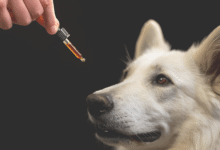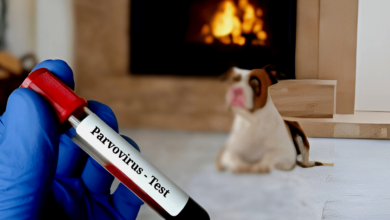
Puppy Diarrhea: Why Your Puppy Has Digestive Issues
Puppies bring immense joy and love into our lives, but as responsible pet parents, it’s crucial to be attuned to their health, especially when it comes to digestive issues. Understanding why your little pup is experiencing diarrhea is the first step toward ensuring their well-being.
Introduction
Welcoming a puppy into your home is a delightful experience, but it comes with the responsibility of addressing common concerns, and one such concern is puppy diarrhea. In this article, we’ll explore the various causes of digestive troubles in puppies and equip you with practical insights on identification, treatment, and prevention.
Causes of Puppy Diarrhea
Dietary Factors
The saying “you are what you eat” holds true for our furry friends too. A sudden change in diet or consumption of inappropriate food can trigger diarrhea in puppies. It’s essential to pay attention to their nutritional needs.
Parasites and Infections
Puppies are susceptible to parasites and infections that can wreak havoc on their digestive system. Regular veterinary check-ups and preventive measures are key to avoiding these issues.
Sudden Diet Changes
Abrupt changes in a puppy’s diet can lead to digestive upset. Gradual transitions when introducing new foods or adjusting portions are essential to maintain digestive balance.
Stress and Anxiety
Believe it or not, stress and anxiety can affect your puppy’s digestive health. Changes in the environment, new routines, or lack of socialization can contribute to diarrhea.
Identifying Puppy Diarrhea
Recognizing the signs of diarrhea is crucial for prompt intervention. Keep an eye on changes in stool consistency, frequency of bowel movements, and additional symptoms such as lethargy or vomiting.
Changes in Stool Consistency
Normal puppy stools are firm; loose or watery stools characterize diarrhea. Monitor any drastic changes.
Frequency of Bowel Movements
An increase in the frequency of bowel movements can be an indication of digestive distress. Take note if your puppy’s bathroom habits suddenly change.
Additional Symptoms to Look For
Diarrhea often comes with accompanying symptoms like lethargy, loss of appetite, or vomiting. These signs shouldn’t be ignored.
When to Seek Veterinary Attention
While some cases of puppy diarrhea can be resolved at home, certain situations demand professional help.
Signs of Dehydration
Dehydration is a serious concern, especially in puppies. If your pup shows signs like sunken eyes, dry gums, or lethargy, seek veterinary attention immediately.
Persistent Diarrhea
If diarrhea persists for more than a day or two, a vet visit is necessary to rule out underlying health issues.
Unexplained Weight Loss
Rapid weight loss in puppies is alarming and requires prompt examination by a veterinarian.
Home Remedies for Puppy Diarrhoea
In mild cases, you can try these home remedies to alleviate your puppy’s digestive troubles.
Adjusting the Diet
Switching to a bland diet, such as boiled chicken and rice, can help settle the stomach. Gradually reintroduce their regular food.
Providing Probiotics
Probiotics promote a healthy balance of gut bacteria. Consult your vet for suitable probiotic supplements for your puppy.
Ensuring Proper Hydration
Diarrhoea can lead to dehydration. Ensure your puppy has access to clean water at all times, and consider offering an electrolyte solution.
Read More: What is parvo in dogs, and how can you prevent it?
Preventing Puppy Diarrhea
Prevention is always better than cure. Take proactive measures to safeguard your puppy’s digestive health.
Gradual Diet Transitions
When introducing new foods, do it gradually. This helps your puppy’s digestive system adjust without causing upset.
Regular Veterinary Check-ups
Schedule regular check-ups to catch potential issues before they escalate. Your vet can guide diet, vaccinations, and overall health.
Minimizing Stressors
Create a calm and secure environment for your puppy. Minimize exposure to stressful situations and ensure they feel safe in their surroundings.
Common Mistakes to Avoid
Overmedicating Without Vet Guidance
Administering over-the-counter medications without professional advice can worsen the situation. Always consult your vet before taking any medication.
Ignoring Persistent Symptoms
If symptoms persist, don’t delay seeking veterinary attention. Ignoring ongoing issues can lead to more severe health problems.
Neglecting Dietary Considerations
Your puppy’s diet plays a crucial role in their overall health. Neglecting proper nutrition can contribute to digestive troubles.
Understanding Puppy Nutrition
Importance of a Balanced Diet
A balanced diet is essential for a puppy’s growth and development. Ensure their food meets their nutritional needs for a healthy digestive system.
Choosing the Right Puppy Food
Selecting high-quality puppy food tailored to their age, size, and breed is fundamental. Consult your vet for recommendations.
Monitoring Treats and Table Scraps
Excessive treats or table scraps can upset your puppy’s stomach. Be mindful of what they consume outside of their regular meals.
Case Studies: Real-Life Experiences
Learning from the experiences of other puppy owners can provide valuable insights into managing and overcoming diarrhea.
Narratives of Puppy Owners Dealing With Diarrhea
Real stories from pet parents who successfully navigated through puppy diarrhea can offer guidance and support.
Lessons Learned and Successful Interventions
Discover the lessons learned and effective interventions that led to positive outcomes in challenging situations.
The Role of Hygiene in Preventing Digestive Issues
Maintaining a clean living environment and implementing proper grooming practices contribute to a healthy digestive system.
Clean Living Environment
A tidy living space reduces the risk of infections and parasites, fostering a healthier environment for your puppy.
Regular Grooming Practices
Regular grooming, including proper cleaning after walks, minimizes exposure to contaminants that could contribute to digestive issues.
Limiting Exposure to Contaminants
Be mindful of your puppy’s surroundings. Limit exposure to potential contaminants, such as spoiled food or substances harmful to dogs.
Balancing Puppy’s Emotional Well-being
The Impact of Stress on Digestive Health
Stress can have an impact on puppies just like it does on humans. Understand the sources of stress and implement strategies to create a positive and reassuring environment.
Activities and Interactions to Promote Mental Wellness
Engage your puppy in activities that stimulate their mind and provide positive interactions. This contributes to their overall well-being, including digestive health.
Exploring Specialized Diets for Sensitive Puppies
Options for Sensitive Stomachs
If your puppy has a sensitive stomach, explore specialized diets designed to address specific digestive issues.
Transitioning to Specialized Diets
Gradual transitions to specialized diets can help your puppy adjust without causing digestive upset. Consult your vet for guidance.
Dispelling Myths About Puppy Diarrhea
Common Misconceptions
Separate fact from fiction by debunking common myths surrounding puppy diarrhea. Evidence-based information ensures informed decision-making.
Evidence-Based Information for Puppy Owners
Empower yourself with accurate information about puppy diarrhea, enabling you to make informed choices for your furry friend’s well-being.
Success Stories: Overcoming Puppy Diarrhea
Heartening Stories of Puppy Recovery
Celebrate the victories of puppy owners who successfully navigated through the challenges of diarrhea and emerged with healthy, happy pups.
Strategies That Worked for Different Cases
Discover a variety of strategies employed by pet parents to address puppy diarrhea, providing a toolkit for managing similar situations.
Conclusion
In conclusion, understanding and addressing puppy diarrhea is essential for the well-being of your furry companion. By being vigilant, making informed choices about their diet and environment, and seeking timely veterinary attention when needed, you can ensure your puppy grows into a healthy and happy dog.
FAQs
- How long does puppy diarrhea typically last?
- The duration can vary, but if it persists for more than 48 hours, consult your veterinarian.
- Can stress really cause diarrhea in puppies?
- Yes, stress and anxiety can impact a puppy’s digestive health. Creating a calm environment is crucial.
- Are there specific breeds more prone to digestive issues?
- Some breeds may be more susceptible, but individual factors play a significant role.
- Is it safe to try home remedies for puppy diarrhea?
- In mild cases, yes, but always consult your vet, especially if symptoms persist.
- What should I feed my puppy to prevent digestive issues?
- A balanced, age-appropriate diet is key. Consult your vet for specific recommendations.







